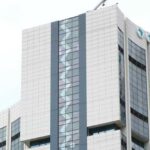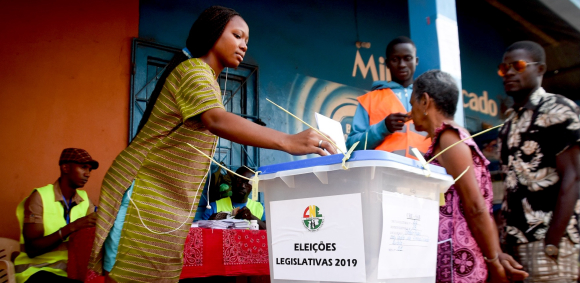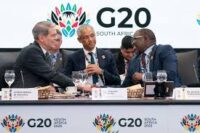Senegal has embarked on an ambitious path towards self-reliance with the unveiling of its 25-year development blueprint, known as “Senegal 2050.” The plan, which is set to transform the West African nation’s economy and society, is focused on reducing foreign dependency, minimizing debt, and prioritizing local resources and human capital to drive growth.
Prime Minister Ousmane Sonko, while presenting the plan, highlighted the urgent need for Senegal to take control of its own economic destiny. “Senegal 2050” draws inspiration from Japan’s post-war economic recovery, which was built on strong national planning, technological innovation, and human capital development. The overarching goal of the plan is to reduce poverty, triple the country’s per capita income, and achieve a steady annual economic growth rate of 6-7% by 2050.
At the heart of the plan is a push for economic independence. This involves moving away from reliance on foreign aid and loans, which have placed Senegal in a precarious financial position. By focusing on local production, developing sustainable industries, and building human capacity, Senegal hopes to achieve self-sufficiency and become a regional economic powerhouse.
Key Features of “Senegal 2050”
The development strategy will be implemented through eight strategically placed development hubs across the country. These hubs will focus on different sectors, including agriculture, infrastructure, energy, technology, and education, to ensure comprehensive growth. The hubs are designed to bring development closer to rural areas, thus decentralizing economic growth and reducing the disparities between urban and rural populations.
Agriculture remains a cornerstone of the plan, with a focus on modernizing farming practices, improving yields, and building agricultural value chains that can compete on both regional and global markets. By investing in local food production and processing, Senegal aims to reduce its dependence on food imports, ensuring food security while also creating jobs for millions of its citizens.
In addition to agriculture, the plan places strong emphasis on renewable energy. Senegal hopes to tap into its abundant solar and wind resources to power its industries and communities sustainably. A shift towards renewable energy would also reduce the country’s dependence on imported fossil fuels, helping to stabilize its economy and create a greener, more sustainable future.
Transparency in Public Finances
In his address, Prime Minister Sonko also revealed that Senegal’s public finances are in a more fragile state than previously reported. He accused the previous administration of misrepresenting the country’s fiscal position, alleging that both the budget deficit and public debt levels had been underreported. These revelations suggest that the country faces a larger financial challenge than initially thought, potentially complicating efforts to implement the 2050 plan.
“The state of our finances is far worse than we were led to believe,” Sonko said. “We are facing a much higher debt burden, and it is clear that we cannot continue on the same path. This is why ‘Senegal 2050’ is not just an option; it is a necessity for our survival and prosperity.” He emphasized that the new government is committed to transparency and fiscal responsibility as it moves forward with the implementation of the development plan.
The former government, however, has disputed these claims, insisting that it maintained a responsible fiscal policy and accusing the current administration of using financial data to score political points. Nonetheless, the current government remains steadfast in its determination to tackle Senegal’s economic challenges head-on and deliver on the promises of “Senegal 2050.”
Focus on Human Capital
A critical component of the plan is the development of human capital. Senegal aims to invest heavily in education and vocational training to equip its population with the skills necessary for a modern, knowledge-driven economy. By fostering innovation and encouraging entrepreneurship, the government hopes to unlock the potential of its youthful population, turning them into drivers of economic growth.














Leave a comment